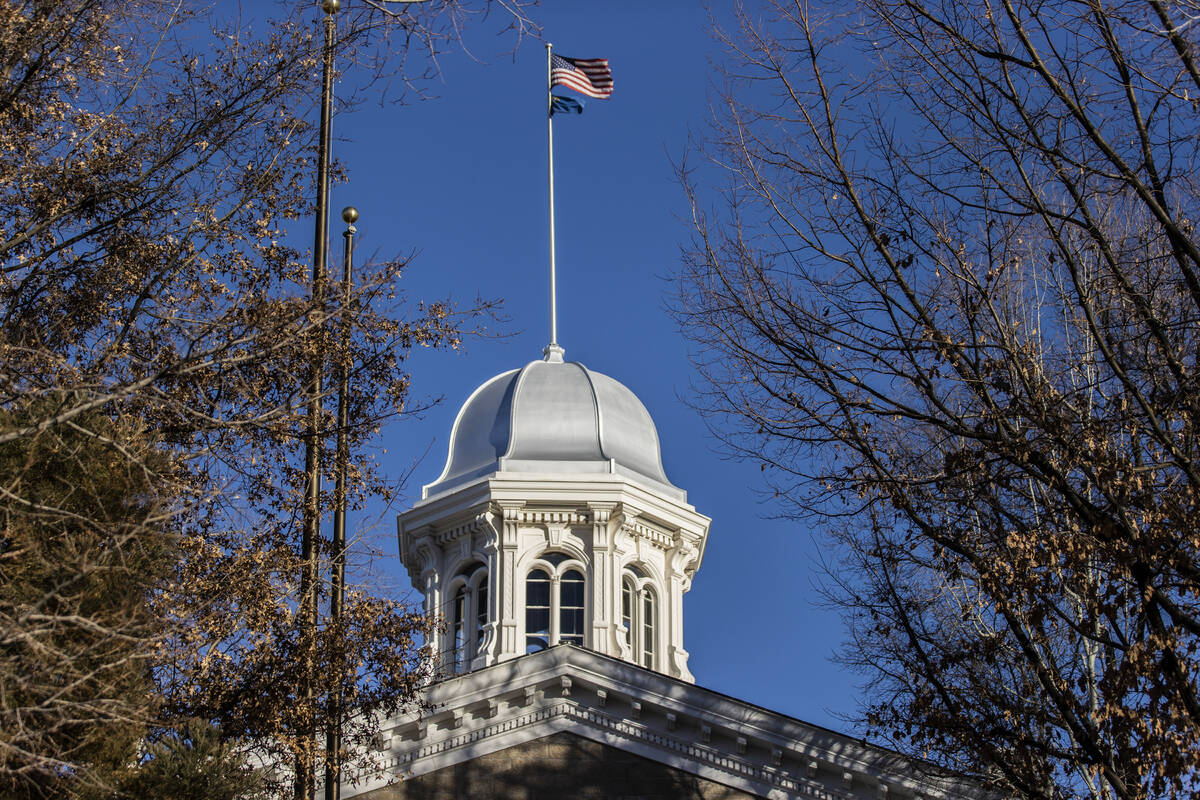What is ‘first house passage’? What to know about Legislature’s next deadline
A flurry of voting activity is coming in Carson City this week as the Legislature heads toward a Tuesday deadline that marks the next major step in this session’s lawmaking process.
The Nevada Legislature has deadlines to help establish a timetable for its short 120-day schedule. Tuesday’s deadline requires most bills to pass out of their originating house in the bicameral Legislature.
Here’s what you need to know about the deadline before hundreds of bills move on — and others fail.
Deadlines ramp up Carson City activities
A previous deadline, for bills to be passed by their originating legislative committee, was the first indication of which bills would survive.
Of several hundred pieces of legislation, 281 failed to meet the Legislature’s first committee passage deadline on April 11, according to data provided by the Legislative Counsel Bureau. As the minority party in both the Assembly and Senate, Republicans saw their bills die more often – accounting for 47 percent of all failed Senate and Assembly measures. By comparison, Democratic-sponsored bills accounted for 19 percent of failed bills in the Senate and 26 percent in the Assembly. (The remaining bills had been introduced by interim committees and other state agencies.)
The week between the first committee passage deadline and Tuesday’s first house deadline was filled with floor votes for the bills that party leaders want to advance. Dozens have moved through already, including a proposal to put Nevada on standard time year-round (Assembly Bill 81), a prohibition on immigration enforcement officers entering schools unless they have a search warrant (Assembly Bill 217), and an attempt to extend an existing Clark County property tax that funds about 800 Las Vegas police officer positions (Senate Bill 451).
Several bills moving through the Legislature are identical or similar to proposals rejected by Gov. Joe Lombardo in 2023, when he set a record with 75 vetoes. They include an effort to legalize medical aid in dying for terminally ill adults and another measure to criminalize creating a fake slate of presidential electors. Both passed out of their original houses last week.
Other priority bills for Democrats — including legislation strengthening gun control and renter protections and establishing free school lunches — were targeted in the Republican governor’s last batch of vetoes. Many are exempt from Tuesday’s deadline or had yet to make it to the full Assembly or Senate for a floor vote as of Friday afternoon.
Fred Lokken, a political science professor at Truckee Meadows Community College, said the majority Democrats may have brought the previously vetoed bills up again to signal to voters that they are a priority for the party ahead of 2026 re-election campaigns.
Or, maybe, things could be different this time around, he said.
“This is political ammunition and also communicating to the government,” Lokken said. “These are important issues to the Democrats. So maybe, just maybe, as part of the compromise process and the deal that’s made, some of these get through this time.”
Bills on hold
A number of bills likely won’t see action in the coming days because of their special exempted status. According to the Legislative Counsel Bureau, 188 bills and resolutions have received exemptions from Legislative leadership — a waiver that can be applied to bills that make large appropriations or otherwise would affect the state’s revenue.
These include some of the most consequential bills of the session, including Lombardo’s priority legislation. Only two of the Republican governor’s five omnibus bills on health care, education, crime, housing and economic development have been introduced: Assembly Bill 540, addressing housing “attainability,” and Senate Bill 457, which focuses on crime and public safety reform. The latter has not had a hearing.
Another exempted subject in the public eye is the effort to entice the film industry to Southern Nevada through an expansion of the state’s film tax credit program. Senate Bill 220 and Assembly Bill 238 both passed out of their original committees without recommendation and were referred to their respective money committees.
Budgeting headwinds could come
Lokken, the political science professor, said bills with a significant fiscal impact or other effect on the state’s general fund may have a more difficult path forward in the Legislature as lawmakers worry about possible funding cuts, either from the Trump administration’s large-scale effort to reduce the size of the federal government, or from revenue declines resulting from an uncertain economic outlook.
One strategy for legislative leaders could be to let bills with hefty price tags fail at deadlines “if it’s looking very bleak because they don’t want to burden themselves in the last three weeks of the session,” he said.
It may depend on the findings of the Economic Forum, a state-mandated economic forecast produced in December to inform the governor’s recommended budget, then produced again as the final official revenue estimate used to formulate the biennial budget. That forecast for the state’s 2025-27 budget comes out May 1.
“They’re going to be really prioritizing what kind of a balanced budget they can get out with the money that they’re now forecast to have, what cuts they may have to do,” Lokken said. “It’s very possible they might stall a lot of the money bills, and some have talked about maybe a special session in six months after the end of this session, just to see where the economy is.”
The Legislature adjourns on June 2.
Contact McKenna Ross at mross@reviewjournal.com. Follow @mckenna_ross_ on X.


















